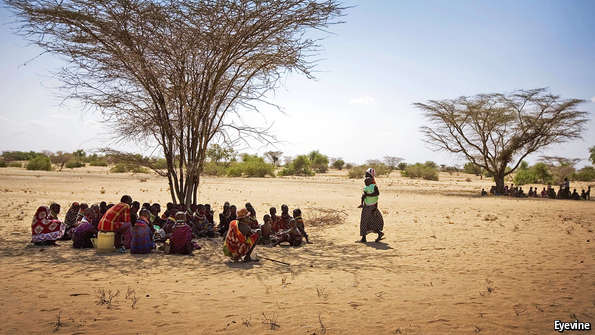HSNP cash transfer value increases by 5%
On 5th July 2015, HSNP increased the value of cash transfer from Kshs.4,900 to Kshs. 5,100 a 5% increment. This is as per the programme decision to increase the cash transfer value every year by 5% inflation rate. The beneficiaries are pleased with the increment.
"The two hundred Kenya shillings increase may look little but it translates to spending a little more on food and other household essentials that have increasingly become expensive over the past few months," shared Abdi Noor a father of 8 from Wagalla in Wajir West.
According to the Kenya National Bureau of Statistics (KNBS), Kenyan annual inflation rate rose to 7.03 percent in June of 2015 from 6.87 percent reported in the previous month, mainly due to drought, rising oil and food prices. This means that inflation is outpacing the economic growth.
In addition, the inflationary pressures have weighed on Kenya's currency, leading it to drop by 4 percent against the U.S. dollar over the past month.
HSNP contributes to Kenya being ranked top over its safety plan for poorest citizens
 A household benefitting from HSNP in Ganyure, Wajir
A household benefitting from HSNP in Ganyure, Wajir
Cash transfers constitute the highest share of spending in all regions except in sub-Saharan Africa, where food and other in-kind transfers dominate. Safety net programmes on average help reduce poverty headcount rate by 8 per cent and narrow the poverty gap by 15 per cent on average.
Kenya’s hunger safety net plan is implemented by the National Drought Management Authority under the Ministry of Devolution. At the moment, the programme supports the poorest and vulnerable households in Turkana, Mandera, Wajir and Marsabit counties.
The programme’s goal is to reduce extreme hunger and vulnerability by delivering regular and unconditional cash transfers of Sh5,100 every two months (starting from July 5, 2015) to targeted households.
Click to read more of the news feature
Click to read more on World Bank's State of Safety Net Report 2015
A glimpse at Africa's future, the Economist
 Lokichar, Turkana"Kenya’s technology boom has reached even the most remote areas, putting smartphones into goatherds’ hands. The central government, supported by DFID, the British government’s development arm, has set up a high-tech cash-transfer scheme for the poorest 10%," excerpt from the Economist, 11th July 2015.
Lokichar, Turkana"Kenya’s technology boom has reached even the most remote areas, putting smartphones into goatherds’ hands. The central government, supported by DFID, the British government’s development arm, has set up a high-tech cash-transfer scheme for the poorest 10%," excerpt from the Economist, 11th July 2015.
People Daily Newspaper 15th June 2015: HSNP cash transfers comes to the aid of Turkana women
 Ngikalei Losikiria at her shop, which she set up using money received from the cash transfer programme“Life is hard this part of the country. When hunger got out of hand we could pick palm tree fruits (Makoma), scrape for water and wait for another day,” Losikiria tells this writer, adding: “Several occasions I was forced to send my children to look for food at school, because prolonged drought left us with nothing to eat,” she continues.
Ngikalei Losikiria at her shop, which she set up using money received from the cash transfer programme“Life is hard this part of the country. When hunger got out of hand we could pick palm tree fruits (Makoma), scrape for water and wait for another day,” Losikiria tells this writer, adding: “Several occasions I was forced to send my children to look for food at school, because prolonged drought left us with nothing to eat,” she continues.
Read more: http://epaper.peopledaily.co.ke/?startpage=8&ArticleTitle=695292#
More Articles...
Page 9 of 12

